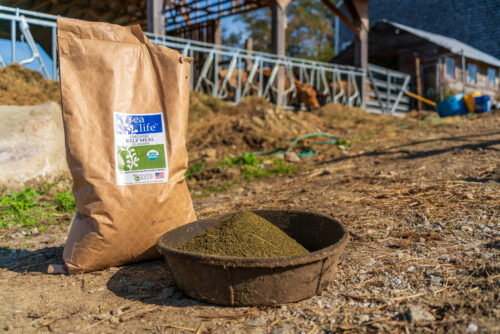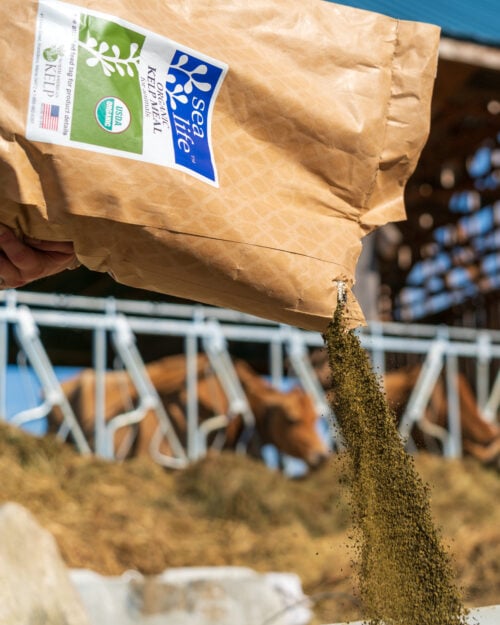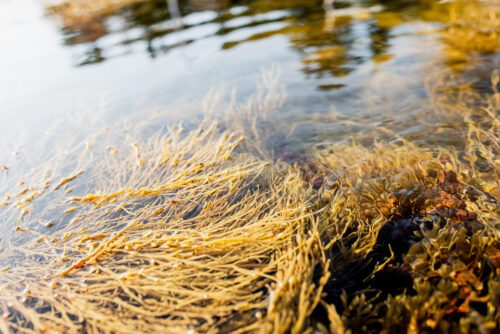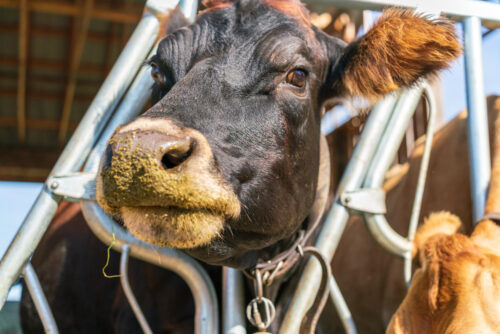With its high nutritional value, seaweed is quickly becoming a sought-after superfood for animal diets. It contains various micronutrients, making it an all-natural feed supplement for livestock and animals. The seaweed can also provide them with over 100 bioavailable vitamins and minerals.
In this article, we’ll go over the benefits of seaweed and how to effectively include it as part of an animal’s diet.

The Nutritional Benefits of Seaweed
Seaweed absorbs minerals and micronutrients from the sea, making it among the most nutrient-dense foods available. It is an excellent source of more than 60 different minerals and contains 21 amino acids and 12 vitamins. Some nutrients packed in seaweed, especially brown seaweed, include copper, calcium, carotenoids, dietary sodium, fiber, folate, flavonoids, iodine, iron, magnesium, manganese, pantothenic acid, riboflavin, and zinc.
Seaweed’s trace minerals are beneficial in promoting good health and immune functions. It can also help reduce the risk of nutritional disorders like milk fever and grass tetany, reduces ruminal methane production, and balances a diet of dried feed and roughage.
Animals That Benefit From Seaweed
Animals like cattle, horses, pigs, sheep, and goats benefit from seaweed in numerous ways. This supplement can improve feed utilization, serve as an excellent source of iodine, can improve milk production, and has been shown to support weight gain. It can also help reduce breeding problems, internal parasites, white muscle disease, and wool shedding.
For dairy cows, seaweed helps increase the iodine content and milk butterfat levels with fewer fluctuations. It can also decrease the chance of mastitis, milk fever, and breeding problems.
Chickens also benefit from seaweed; the supplement can help increase egg production, and it can strengthen the eggs’ shells.
Finally, seaweed can promote flexibility and improve the sheen of the skin and coat of dogs, cats, horses, and the like
Portion Recommendation When Using Seaweed as an Animal Supplement
To help with intake, seaweed is dried and ground and can be incorporated into an existing feed program. During the process, low heating temperatures are maintained to preserve the nutrients.
Here are recommended feeding ratios for livestock and pets:
- Dairy and beef cattle: 2 to 4 oz. per day
- Calves: 1 to 2 oz. per day
- Range cattle: Free choice at two parts meal to one part salt mix
- Horses, sheep, and goats: ¼ to ½ oz. per day
- Swine: Free choice or 50 lbs. to 2,000 lbs. of complete ration
- Chickens: 1% of total feed pre-mixed
- Turkeys: 1 to 2% of total feed pre-mixed
- Dogs: ¼ teaspoon per 25 lbs. body weight
- Cats: 1 pinch or 1/16 teaspoon per day
Seaweed Feed Supplements From North American Kelp
North American Kelp is your reliable source of seaweed feed supplements for your pets and livestock. Our Sealife™ kelp meal is made from 100% wild-harvested seaweed from the Maine coast and is suited for year-round supplementation.
If you’re looking for an excellent natural feed supplement for your animals, North American Kelp is the partner you need! Contact us today for more information about our seaweed products!




2 Comments
Brian Funkhouser
I would like to add kelp to my deer mineral (100lb) how much should I add to it.
samantha
Hi Brian, we don’t have specific recommendations for feeding deer at this time. You can see the feed tag here: https://noamkelp.com/seaweed-products/animal-supplement/ which will give you nutritional content and help guide your feeding ratios.